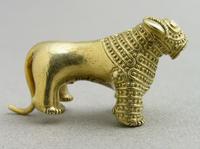Georgia's history is deeply intertwined with the expansive narratives of ancient civilizations, notably the Roman Empire. The Roman influence in Georgia, a country at the crossroads of Europe and Asia, played a pivotal role in shaping its cultural, political, and architectural landscape.
Early Encounters and Political Dynamics
The Romans first made contact with the Georgian kingdoms of Colchis and Iberia around the 1st century BC. Initial interactions were marked by diplomacy and trade. Roman artifacts found in Georgia attest to these early connections. By the 1st century AD, the Romans had established their influence more firmly.
Roman influence in Georgia grew significantly during Emperor Trajan's reign (98-117 AD). Trajan’s expansionist policies led to increased Roman presence in the Eastern Black Sea region. Notably, the Kingdom of Iberia (eastern Georgia) became a client state of Rome. This relationship was not one of colonization but rather a strategic alliance, with Iberia retaining a degree of autonomy.
Architectural and Cultural Exchange
The Roman architectural influence is evident in Georgia's ancient structures. The remains of Roman-style fortifications and public buildings, such as the Gonio Fortress near Batumi, showcase Roman engineering techniques and urban planning principles. These structures typically featured stone construction, with baths, aqueducts, and roads mimicking Roman designs.
Culturally, the Roman impact was more nuanced. While Latin never supplanted the local languages, Roman art, religion, and law influenced Georgian elites. Christianity's spread in Georgia in the 4th century was partly facilitated by Roman influence, although the Georgian Church developed its distinct identity.
Military Campaigns and Defense
Roman military campaigns in Georgia primarily focused on defense against external threats, such as the Persians and various nomadic tribes. The Romans fortified the eastern borders of Georgia, constructing a series of defense lines known as the "Caucasian Gates." These fortifications were crucial in safeguarding both the Roman and Georgian territories.
Roman military tactics and organization also influenced Georgian armies. Georgian soldiers often served in Roman legions, and some rose to prominent ranks. This exchange of military knowledge contributed to the development of Georgian military strategies and fortifications.
Economic Integration and Trade
Trade was a significant aspect of Roman-Georgian relations. Georgia, known for its agricultural products, especially wine, became an important supplier to the Roman market. Roman coins and goods found in Georgian archaeological sites indicate active trade routes.
Roman influence also brought about changes in Georgian coinage and economic practices. The introduction of Roman monetary standards and economic policies facilitated trade and economic integration between the regions.
Administrative Influence and Legal Systems
The Roman administrative system indirectly influenced Georgia, especially in the Kingdom of Iberia. While direct Roman rule was never established, Roman administrative practices, including taxation and legal systems, influenced Georgian governance. Roman law, known for its complexity and fairness, inspired some aspects of Georgian legal traditions. This influence is evident in the surviving legal codes and inscriptions from that era.
Religious Impact and Christianization
The introduction of Christianity in Georgia in the early 4th century was a watershed event, significantly influenced by Roman religious policies. Saint Nino, who is credited with converting Georgia to Christianity, was said to have had connections to Rome. The adoption of Christianity aligned Georgia more closely with Roman religious and cultural norms, facilitating deeper integration with the Roman world.
Roman architectural influence was also evident in early Georgian Christian structures. The design and construction of churches in Georgia during this period often mirrored Roman basilicas, incorporating architectural elements like domes and arches typical of Roman ecclesiastical buildings.
The Legacy of Roman Rule
The Roman legacy in Georgia is a complex tapestry of cultural, political, and architectural influences. Roman administrative practices laid the groundwork for future Georgian governance structures. The Roman military presence left a lasting impact on Georgian military architecture and tactics. Culturally, Roman art and religion left an indelible mark on Georgian society.
However, it's important to note that this influence was not unilateral. Georgian culture also impacted Roman practices, particularly in terms of art and military tactics. The interaction was a dynamic exchange, contributing to the rich historical narrative of both civilizations.
Conclusion
Roman influence in Georgia represents a significant chapter in the country's history. From early diplomatic and trade relations to the profound impact on religion, architecture, and governance, Rome's interaction with Georgian kingdoms shaped the course of Georgian history. This influence is a testament to the interconnected nature of ancient civilizations and highlights the importance of Georgia in the broader context of Roman history.

 Kingdom of Colchis
Kingdom of Colchis
 Kingdom of Iberia
Kingdom of Iberia
 Hellenistic Influence in Georgian History
Hellenistic Influence in Georgian History




